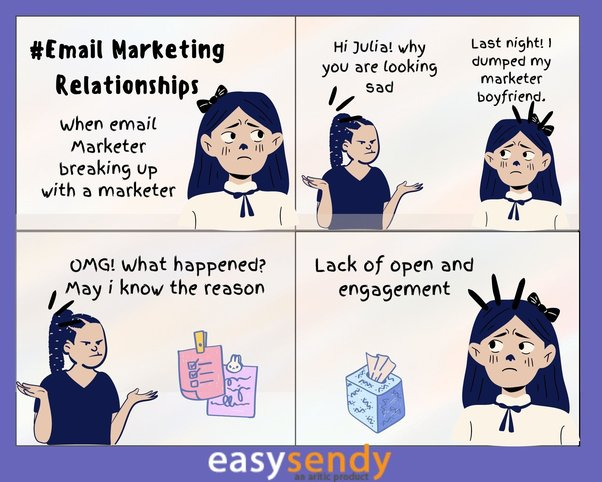
[Source:Freepik]
Marketers are always on the hunt for new ways to promote their businesses and cover the targeted audience in totality. “Multichannel marketing” is a jargon floating around the eCommerce niche for a long time now. Let’s break this buzzword down into digestible form and peek more into how it can be important for online businesses.
As the name suggests, Multichannel marketing is the practice of reaching out to potential customers through multiple channels. These channels can be online marketplaces, social media platforms, an online website, etc.
The brand presence across these platforms allows the business to reach potential customers and vice versa.
What Does Statistics Say?
Before we jump to the main point, consider looking at some eye-opening statistics for eCommerce multichannel marketing.
- In the United States, the multichannel eCommerce stores generated over $350 billion in 2020, which is expected to cross $575 billion by 2023. [Statista]
- Multichannel marketing boosts the revenue by 38%, 120%, and 190% with each additional channel. [Shopify]
- 62% of the customers who engage with retailers across 10+ channels purchase at least once a week. [Martech]
These facts suggest how multiple channels can help businesses perform better. Let’s dive further into this topic.
Why is Multichannel Marketing Essential for eCommerce?

[Source:Freepik]
Multichannel marketing for eCommerce allows businesses to leverage audience reach across multiple channels and online platforms. Many businesses are using this strategy to reach potential customers through channel diversification.
Here are some key reasons to go multichannel for the eCommerce businesses:
- Builds Trust: Multichannel marketing is all about allowing the customers to purchase from their preferred choice of platform. There may be a segment of customers who’d prefer shopping from reputed eCommerce marketplace such as Amazon, and also a segment preferring shopping from social media.
- Nurtures the Complete Funnel: In eCommerce businesses, it is important to nurture each stage of the marketing funnel for optimum results. The audience at different stages of the funnel may require different approaches. This is where using multiple channels can help. Each of the marketing channels can be optimized for different stages of the funnel, nurturing all the funnel stages using personalized and timely text messages through SMS API can help speed up the engagement.
- Increases Revenue: Omnichannel marketing helps cover a major possible part of the targeted audience. More marketing channels simply mean you’ll target more potential customers. Each marketing channel significantly increases the business revenue through its unique audience base.
- Improves Branding: Multichannel marketing creates an opportunity for the business to reinforce their branding across multiple platforms. Such consistent impressions across the channels and platforms can help build a positive brand image in the long go.
- Targets Precisely: Cross platform marketing powers the businesses with a wide range of audience data and demographics that can be used to precised target the right audience base. This allows the businesses to reach customers at the right time through the right channel, increasing conversions.
Types of Different Marketing Channels for eCommerce

[Source:Freepik]
In this age of digitalization, there are numerous ways to reach your potential customers through different channels. Companies also use a multichannel contact center or ERP software to provide better communication and excellent customer service. We know that ‘Multichannel marketing’ refers to selling products on different online platforms, but what are they?
Listed below are some of the most common marketing channels for eCommerce businesses to leverage multichannel marketing in 2023:
Social Media Platforms
Social media platforms envelop a wide range of audience bases. Most customers use these platforms in their leisure time, making them the most favourable marketing channels.
These days, the majority of the well-known social media platforms support leveraging products and social commerce. Some of the most famous social commerce platforms are Facebook, Instagram, TikTok, etc. It’s no surprise why many businesses decide to consult with reliable social media marketing companies before starting their marketing campaigns.
Email Marketing

Source:- easysendy.com
Surprisingly email marketing still works, and that, too, with a handsome rate of RoI. It is the best channel for remarketing and customer retention to keep the existing customers updated with your business through newsletters. Businesses can also leverage email marketing strategies to encourage customers to complete their pending orders and reduce cart abandonment rates.
Combined with the synergized benefits of SEO & content marketing, an eCommerce website can drive a major chunk of sales. An eCommerce website is essential to build a professional impression amongst the visitors. As important content for website is, so it is for direct messaging as part of SMS marketing and business blogging.
Mobile Shopping App
Considering the increasing number of handheld devices worldwide, it has become essential for businesses to leverage their marketing efforts in this direction.
Mobile apps are great marketing channels to send push notifications to customers and collect crucial information that can further be used for marketing purposes.
Comparison shopping engines
Comparison shopping engines (CSE) are some of the best ways to improve the online visibility of your online store. CSEs allow the customers to find the same products from multiple websites and compare their prices. Some of the most famous CSEs include Google Product Listing Ads, Amazon Product Ads, NexTag, etc.
Online Marketplaces
Many customers prefer purchasing products from online marketplaces such as Amazon, Etsy, eBay to reach a more widespread audience range. For example, if you are running two online stores on Wix and on eBay, you should consider connecting Wix with eBay to manage them easier on only one dashboard. Listing your product on such famous marketplaces can open doors of opportunities for your brand to reach a more widespread audience range.
Tips to Build a Solid eCommerce Multichannel Marketing Strategy
Now, you might have understood why multichannel marketing strategy is essential for eCommerce businesses. It’s time for the real game now – here are some tips to implement multichannel marketing the right way.
Understand Your Customers
Customers are at the heart of marketing, and especially for multichannel marketing; it is vital to understand the targeted customers first. Before steering towards multichannel marketing, it is important to figure out which marketing channel is best for your targeted audience base.
For instance, if you are into a SaaS business with professionals being your potential customers, then professional platforms such as LinkedIn can be your preferred choice of marketing platform. On the other hand, if you are into the fashion & clothing industry, social media platforms such as Instagram and Facebook can prove the most profitable for you.
Furthermore, it is also important to understand the buyer’s journey in multichannel marketing. It should be implemented in such a manner to nurture a complete audience base through the marketing funnel.
Focus on UX of Your Store
User experience plays a success-deciding role for the online business. In the case of multichannel marketing, you can reinforce your brand and business on third-party platforms such as social media, online marketplaces, etc. Over the course of time, these third-party marketing channels can leverage traffic to your main eCommerce site.
Such instances create a perfect opportunity for you to impress the visitors with an intuitive user interface and provide them with an unforgettable shopping experience. If you are a Magento store owner, you can use Magento 2 Instagram Feed to make your store more beautiful by showing Instagram posts.
Some of the key features to provide optimum user experience to the customers in your store are:
- Responsive & Intuitive UI
- Faster Page Loading
- Simple Checkout Process
- Multiple Payment Options
Synergizing multichannel marketing with an excellent user experience can bootstrap your business for more profitability and returns.
Curate Channel-wise Catalog
Once you have grabbed your target audience’s attention through your marketing, its time for the tough job of propelling them towards conversion. The shopping preferences of different customer segments may be different. A single product catalog may not work across the platforms. Therefore, a business may require to curate multiple product catalogs for multiple platforms.
It is vital to consider who the customers are and where they are while presenting product catalogs. Presenting inappropriate or irrelevant products to the customers would do nothing other than increasing friction along the path of conversions. Ensure that each and every platform clearly presents the products most suitable for its audience base. You may require to perform some A/B testing to find the best products for different platforms.
Curating channel-wise catalogs can help leverage conversions and sales across the platform for different audience bases.
Maintain Multi Channel Consistency
Consistency is the key in branding, and one should not forget this during multichannel marketing. It is essential to emphasize the same flawless user experience across the channels.
Negative customer experience on even a single marketing channel can directly affect the branding and impact the performance of multichannel marketing. Therefore, it is vital to maintain a consistent, flawless, and customer-oriented experience. Magento store owners can use Magento 2 Facebook Shop Integration to provide a consistent shopping experience on Facebook.
Providing a satisfactory customer experience across the marketplaces can help gain positive ratings that can help win more sales. Oftentimes enhanced customer experience comes with automation and AI-powered solutions across your customer journey. So, for your AI model to perform accurately and deliver the best possible experience for your clients, you have to make sure you have enough relevant data collected and there is proper data labeling and training in place. Some of the key aspects of maintaining consistency while going multichannel are:
- Consistent Branding
- Satisfactory Customer Support
- Streamlined Inventory Management
- Shipping & Payment Facilities
Nurture Relationships with Customers
Customer relationships are invaluable for online businesses. It becomes more important to manage customer relationships when you go multichannel. Nurturing customer relationships is a continuous process that results in increased average order value, higher brand reputation, and repeat sales.
Let it be a lead, prospect, potential customer or an existing customer; nurturing and maintaining a good relationship is highly important for online businesses. Remarketing and customer retention are as important as marketing, and no eCommerce business can afford to ignore them. In the case of multichannel marketing, managing customer relationships across different platforms can turn into a cumbersome task. Therefore, using a Customer Relationship Management (CRM) tool becomes inevitable.
A good CRM tool can help you to maintain, assist and nurture relationships across all the marketing platforms, resulting into increased customer satisfaction and retention.
In the End…
Multichannel marketing has become highly important for the eCommerce businesses that are looking to scale and establish a brand. An omnichannel approach to your marketing efforts can propel the growth of your business and take it to new heights.
360-degree digital reach and multichannel management can help you have a competitive edge.








